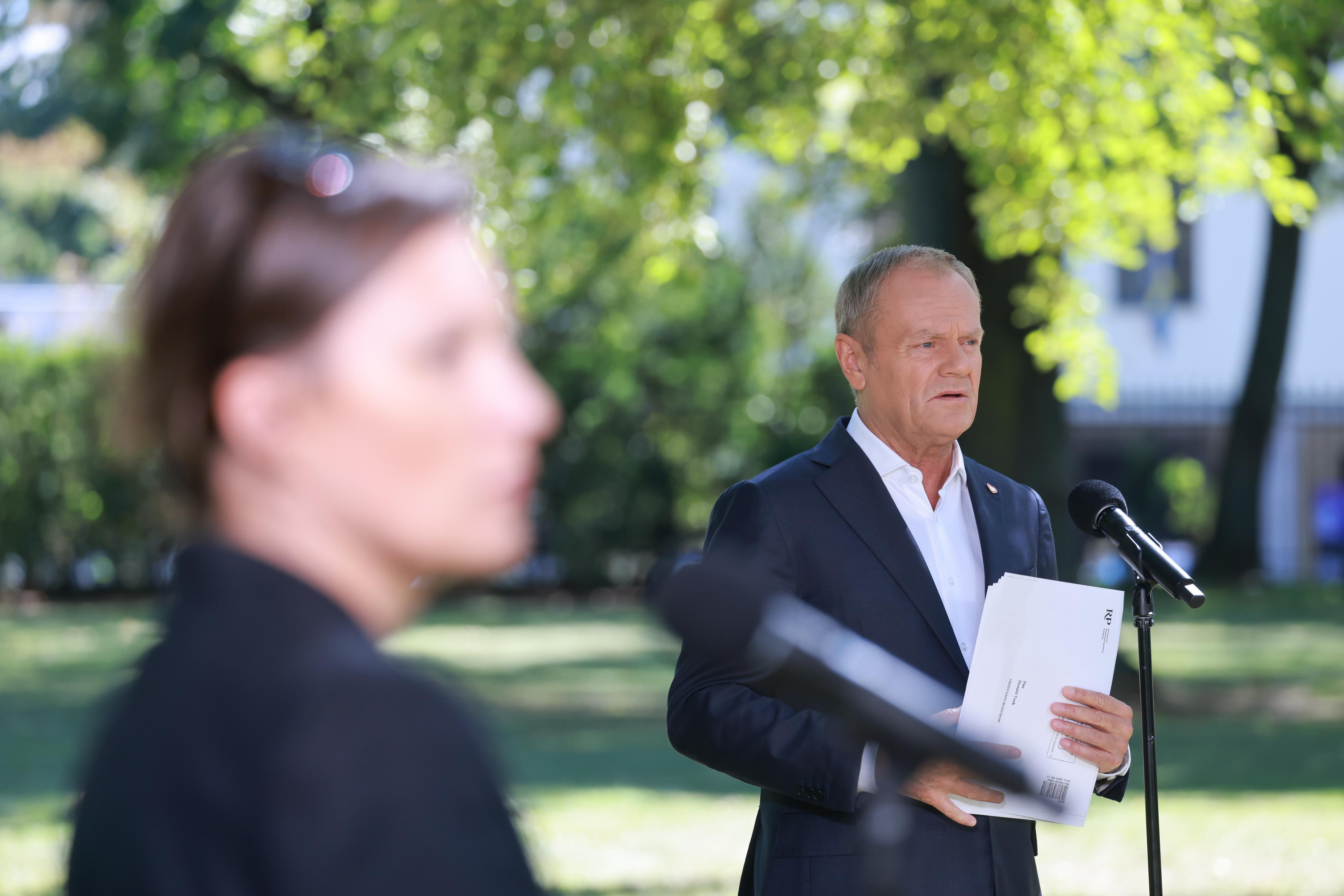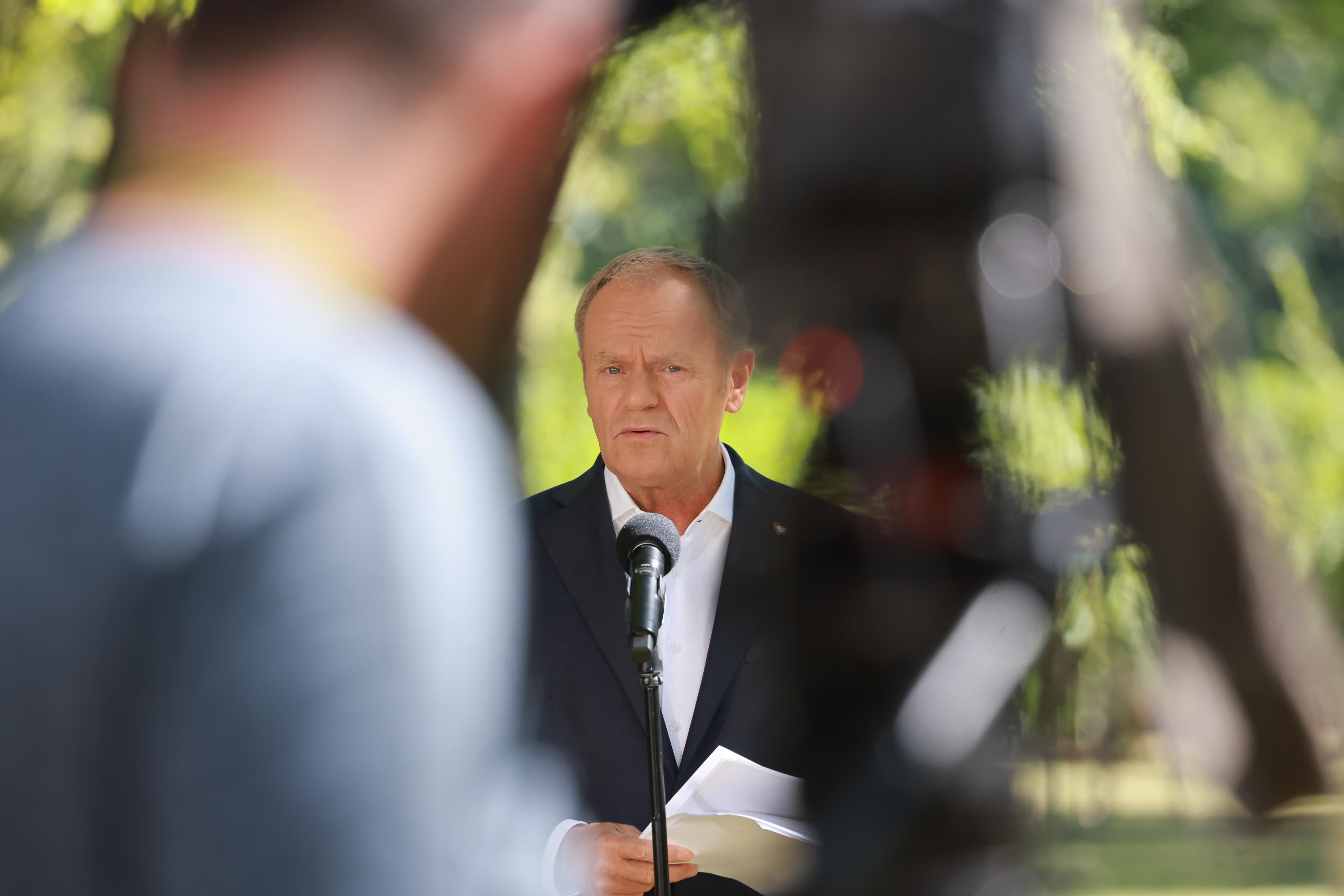Piotr Serafin - our candidate for the Polish Commissioner in the EU
13.08.2024
During its Tuesday meeting, the Council of Ministers unanimously approved the candidacy of Piotr Serafin for the seat in the European Commission. It also adopted a resolution on the Rare Disease Strategy for 2024-2025. The Council of Ministers was also briefed on the work of the Investigative Committee for Russian and Belarusian Influences.

Government candidate for Commissioner
The Council of Ministers has recommended Piotr Serafin for the post of Commissioner in the European Commission. He currently serves as Permanent Representative of the Republic of Poland to the European Union in Brussels and was Head of Cabinet of the President of the European Council Donald Tusk from 2014 to 2019. Previously, he was also Janusz Lewandowski’s closest associate, as well as one of the authors of the European budget that saw the highest funding received by Poland.
“That budget kickstarted all the grand investments and projects that made waves in Poland and abroad, enabling an express reconstruction of Poland. Piotr Serafin played a crucial role in this regard,”
the Prime Minister stated during the press conference.
The procedure for the appointment of the commissioner requires consulting President Andrzej Duda, as well as the opinion of the Parliamentary Committee for European Union Affairs.
“I would like everybody in Europe to understand that as far as the matters of Polish interests, funding and security are concerned, we are working hand in hand, regardless of political affiliation,”
he noted.
The appointment of Piotr Serafin, who is experienced in European affairs, for the post of the EU Commissioner is an opportunity for Poland, which could bring the country tens of billions in funding.
“It seems very likely that the Polish Commissioner will be responsible for the key area - the European budget,”
Donald Tusk admitted.
The commissioner in charge of the budget can take advantage of a wide range of possibilities for building cooperation and influencing decisions that impact various areas of European life. All commissioners have to take the of the Budget Commissioner into account. Taking responsibility for the European budget would be a great challenge, as well as a great opportunity for Poland.
Supporting patients with rare diseases
In Poland, around 3 million people suffer from rare diseases. On Tuesday, the Council of Ministers passed a resolution ensuring better support for them. In 2024 and 2025, the government intends to spend nearly 100 million PLN for this purpose.
“We were all moved by the fate of patients, especially the youngest ones, often connected with suffering and death. Especially when there was no funding for medicines, or there were no medicines or procedures that could help children suffering from rare diseases, including cancers and genetic disorders,”
said Donald Tusk.
Starting on 1 July, 24 new medicines will be available to treat rare diseases. Among 10,000 of them, many affect children.
“We are spending a lot of money. As far as rare diseases are concerned, we are going to spend at least four times as much as our predecessors spent last year,”
the Prime Minister noted.
What is more, new Rare Disease Expert Centres will be established in voivodeships.
“Our aim is to have these centres across all of Poland, in each of the 16 voivodeships, as quickly as possible. This is needed if we want to be able to spend more money in an effective way. Diagnosis, selection of the right treatment procedure, the right drugs - all this requires a much better system than the current one we have. That is why we are supporting the establishment of these centres,”
Donald Tusk announced.
The initiative also encompasses upgrading laboratory equipment and ensuring better access to diagnostic tests. Data will be collected in the Polish Rare Diseases Registry, and the Rare Disease Patient Chart will also be established to facilitate monitoring healthcare processes and ensuring the safety of rare disease patients.
Compulsory pregnancy registry on its way out
Prime Minister Donald Tusk also shared a crucial information for Polish women. The pregnancy registry, introduced by the previous government amid protests, will no longer be compulsory.
“Polish women had the feeling, which was not exactly unsubstantiated, that this compulsory pregnancy registry, which was available not only to doctors but also to prosecutors, was a way of repressing pregnant women. As of now, the registry will only include the details of women who consent to this - and this puts an end to the darkest chapter concerning the treatment of pregnant women in Poland,”
the Prime Minister stated.
Registering a pregnancy will require explicit consent of the mother. Otherwise, it will not be possible. The information in the registry will only be used by doctors in the cases where the woman’s health or life is in danger.
Investigative Committee for Russian and Belarusian Influences
The preliminary report from the proceedings of the Investigative Committee for Russian and Belarusian Influences was presented on Tuesday. Over the course of 24 meetings, the members worked on an organisational and methodological report.
“My intent was to ensure that the Committee would investigate actual threats to economic, social and political life stemming from the influence of Russian and Belarusian services, rather than to launch some kind of a witch hunt against the opposition. This was crucial for me,”
the Prime Minister noted.
Prime Minister Donald Tusk announced that the first report will be presented on 29 October 2024. It will contain substantive findings on the alleged activities of foreign services and foreign influence in Poland.



